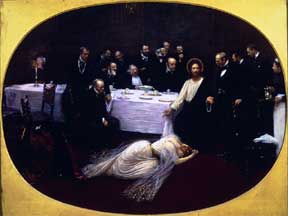 |
| Monument to St. John of the Cross in Frontiveros, Spain. |
You can’t read the Carmelite saints for long without encountering the idea of detachment. We find it in the writings of John of the Cross, of Teresa of Avila, and even of St. Therese. Detachment for Catholics is not the same as mere penance. Detachment, like the entire spiritual life, begins and ends with love.
St. John of the Cross is the master teacher about detachment. Here is his famous passage on detachment from The Ascent of Mount Carmel:
Endeavor to be inclined always:
not to the easiest, but to the most difficult;
not to the most delightful, but to the most distasteful;
not to the most gratifying, but to the least pleasant;
not to what means rest for you, but to hard work;
not to the consoling, but to the unconsoling;
not to the most, but to the least;
not to the highest and most precious, but to the lowest and most despised;
not to wanting something, but to wanting nothing.Do I detect a few sighs?
If we read this passage out of context, the spiritual life appears dry, difficult, and even impossible. We are tempted to give up before we even begin. We reject John of the Cross and move on to another saint whose teaching appears less demanding.
What if I told you that St. Therese practiced perfect detachment? What if I told you her Little Way makes the same demands as John’s Ascent? Let’s look at the passage again in light of the life and teaching of St. Therese.
Read the rest at Contemplative Homeschool.



